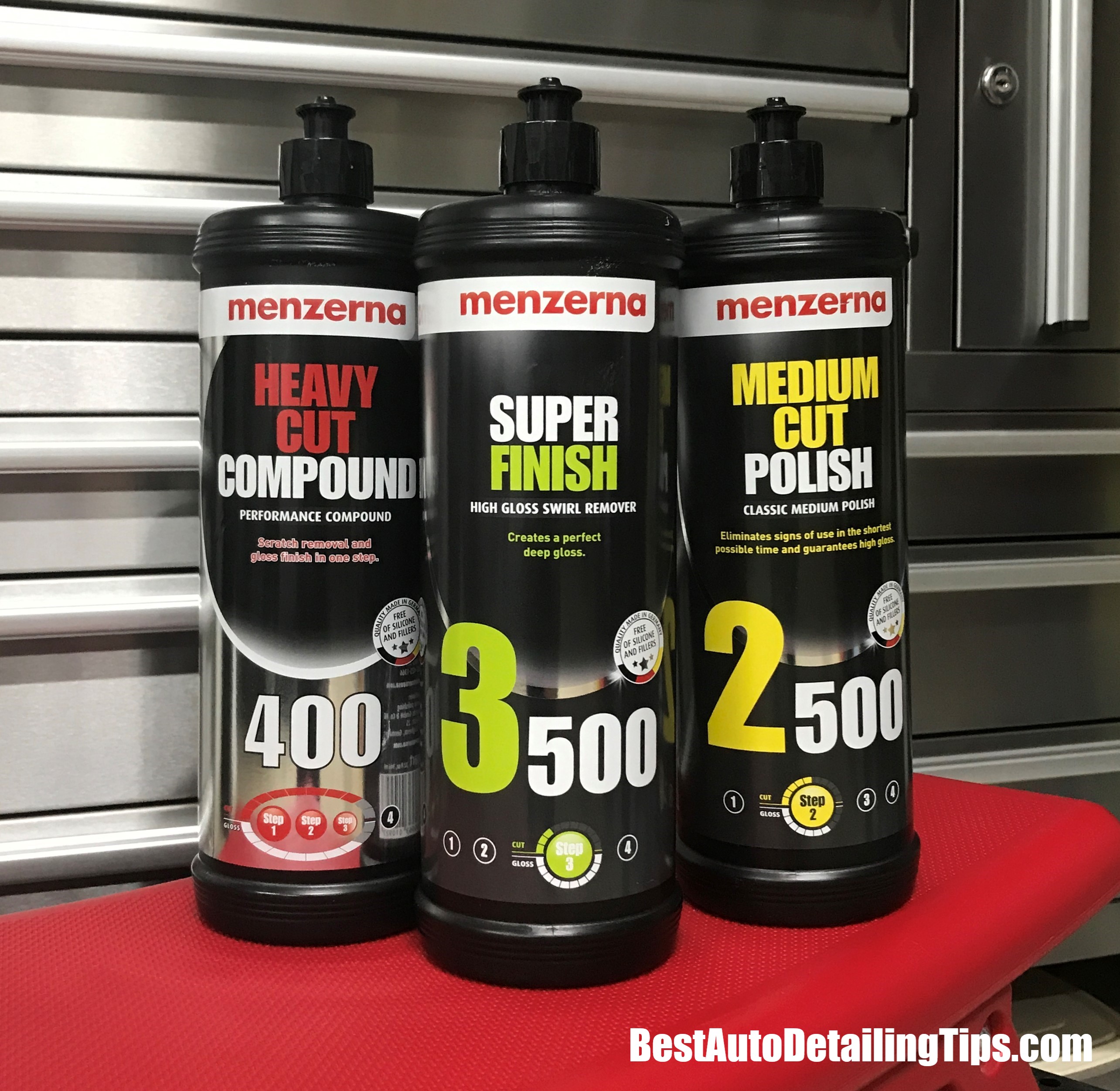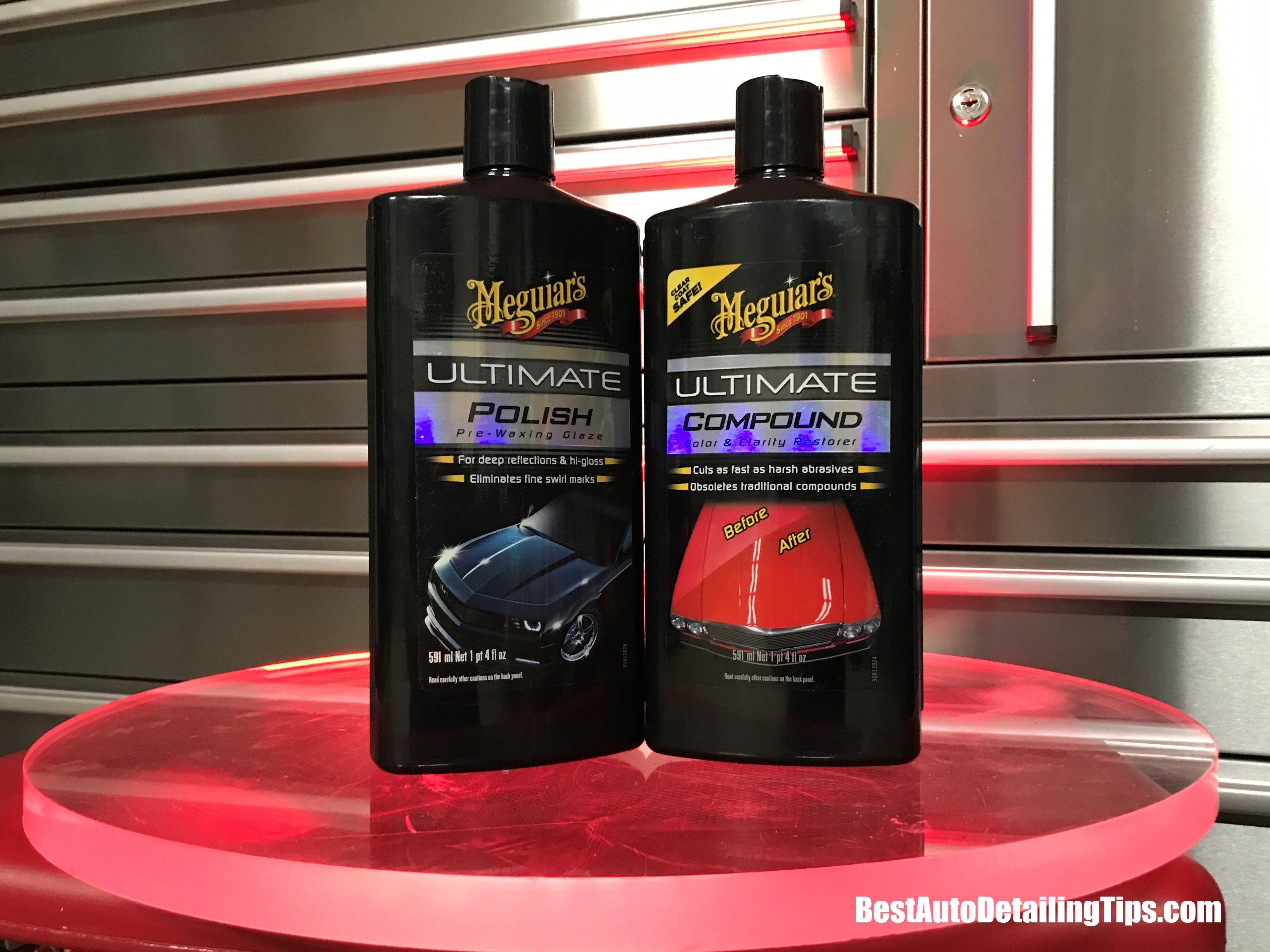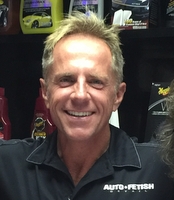Polishing Compound
You haven't been asking the right questions
Do you know what polishing compound really is?
Is it a noun or is it a verb?
Is it something you do (polishing with a compound?) or is it something you buy so you can polish your car with?
Do you polish with a compound or do you polish with a polish? Or can you compound with a polish? And if you can compound with a polish, would there not be compounding polish?
But there seems to only be polishing compound, not a compounding polish.

What is Polishing Compound?
I wish the answer to this question was more simple. But it's not...
The answer you get will be entirely based on who you ask. And if you ask me, (which in ways you are with this page) I will deliver more questions to be asked before I get to a specific answer.
"Most people are not asking the right questions. Chances are that you aren't asking the right questions either."
If you aren't asking the right questions, how can you expect to get the right answers.
But what are the right questions you say, Darren?
Glad you ask.
- What is the difference between a compound and polish?
- What is a rubbing compound vs. a polishing compound?
- What is a polishing compound?
- Do compounds really kill car paint?
- What is the best product to polish a car with?
- What is the safest product to polish a car with?
I am willing to bet that I have just expanded your mind into areas you never thought about as you typed in the search term that got you to this page.
Difference Between Compound and Polish
The most basic and simple answer is that compounds are more aggressive than polishes. Compounds as a rule, will always have some type of abrasive particles, while polishes sometimes will, and sometimes won't.

Compounds do the heavy lifting of defect removal, while polishes do the fine tuning to be used after any compounding has been done.
It would be nice if I could leave it at that answer and you could walk away and have the definitive answer, but you can't.
Part of the big problem with this industry is there are no set rules. Manufacturers can label their products any way they choose.
This means that a compound by one company may have no abrasives, while a compound by another company will have abrasives.
Rubbing Compound or Polishing Compound
Just when you thought you were confused by polishing compound, now I go and introduce you to something you likely were already familiar with, but had forgotten about.
What is the difference between rubbing compound and polishing compound?
Nothing...and yet everything.
Once again, there is no governing body within the detailing community. This means manufacturers can formulate a product any way they want, as well as label it any way they want.
A rubbing compound from one company may have abrasives, while a rubbing compound from another company may have no abrasives. Often the difference is more about the specific audience a manufacturer is attempting to reach. Most products marketed to the consumer will be "dumbed-down" to minimize risk.
This means that a retail product like Turtle Wax rubbing compound will be formulated overly mild to prevent the possibility of any car owner from damaging their car due to lack of experience.
But this does very little to educate people along with adding additional confusion to an already confused market.
What is Polishing Compound
Polishing compound is simply another "label" manufacturers have decided to use in their endless pursuit to stay relevant and ahead of their competition.
Not to sound like a broken record, but a polishing compound can be anything a manufacturer decides to label as such. Which then means that sometimes a polishing compound will have abrasives, and sometimes it won't.
You simply do not know until you know.
This means that as a car owner you can start by reading the labeling and this might give you a clue as to what you are working with. But often, the labeling of these compounds, polishes, etc., are so hyped-up, embellished, or use massive generalizations, that you will be scratching your head trying to decide what you actually have in your hands:
a polish, a compound, or a polishing compound??
As a rule, the industry has only ever been interested in, and continues to only be interested in, selling more "stuff". And the more stuff they can sell you through disingenuous marketing, the better it is for them. (not to sound overly cynical, but I am speaking out of my own frustrations as a car owner, consumer, and detailing professional)
Compound vs Polish: Does compound kill paint
Hyperbole or valid statement?
In the many videos I produce for my YouTube channel, I am quoted as saying that compound kills. I realize "Kills" is a strong word, but a strong word meant to invoke a strong reaction.
My opinion on this subject is both strong and specific.
And it has less to do with how a manufacturer labels their polishing compound, or whatever else they choose to call it, and more about the specific type of abrasive technology used in formulating a particular polishing compound.
To fully understand what I mean, we will need to talk about abrasive technology.
Polishing a Car with Abrasive Technology
My experience has taught me that most people searching for the best way to polish a car, will often go in search of the best polishing compound with the understanding that the only way to make a lasting difference will be using products that are formulated using some kind of abrasives.
As I teach people, abrasive technology (a glorified way of saying that a product like a compound, polish, or polishing compound has some type of abrasive particles) is how you scratch your way to success.
Tiny abrasive particles suspended within a compound or a polish refine the paint surface to remove imperfections and scratches, while creating greater shine, gloss, and depth to car paint.
The microscopic abrasives "scratch" away the material (car paint/clear coat) as they move against the surface. Regardless of whether you are polishing your car by hand or machine polisher, your chosen polish or compound rubs against the surface and continuously "scratches" away material that refines the surface.
"Not all abrasives are created equal"
Diminishing Abrasive Technology (DAT): The biggest problem with diminishing abrasives is loss of control. The abrasives "break down" during use at inconsistent and undetermined rates.
Diminishing abrasives are abrasive particles intended to break down during the polishing process.The logic being that these abrasives begin life as more aggressive particles, then break down to finer and finer particles during use.
Many products in life use diminishing abrasive technology. From traditional sand paper, to facial scrub, to household cleaning products. Which is another reason the world of car care and detailing embrace this technology with such enthusiasm.
Most people see the logic behind this initially. At least until I enter the picture and introduce people like yourself to the advanced technology of non-diminishing abrasive technology.
A simple analogy would be comparing traditional sandpapers (diminishing) with diamond sandpapers (non-diminishing).
Non-Diminishing Abrasive Technology (NDAT): Non-diminishing abrasives are all about control. Not only do the abrasive particles start out at a much more consistent size when compared to diminishing abrasives, but the abrasive articles fall under the classification of non-diminishing.
This means that the particles retain original size during the entire polishing process. This results in a more controlled polishing process. This also allows manufacturers to create what has been labeled as Single Product Polishing (SPP).
Normal car polishing with traditional compounds and polishes require the use of multiple products in the form of compounds and polishes to go from heavy defect removal to swirl free finishing.
Polishing Compound:
What Would Darren Do (WWDD)
Life is busy and often in life we would like to "cut to the chase" and get the results we are after sooner, not later.
And for this reason many people simply want to know what I would do as a person. Which is why I will answer with my following recommendation as to what I consider the winning balance of compounds, polishes, and polishing compound...which is actually a polish formulated using non-diminishing abrasive technology:
Ceram-X Car Polish:

CSI Ceram-X Car Polish 62-203-Quart - Single Product Polish (SPP) Superior Single Polish Replaces The Countless compounds/Polishes You Think You Need
- The original Single Product Polish (SPP)
- Has the cutting abilities of compounds but finishes down to swirl free finish
- Can be used on any paint type, any color, any time
- Uses non-diminishing abrasive technology
- Throw away all other compounds, polishes, and polishing compounds
Darren's Note: As a beginner, you will likely embrace the simplicity of a single product polish when compared to the endless products that rely on multiple compounds and polishes as part of their polishing system.
Ironically, I find that I have to spend more time explaining this very simplistic approach to guys that have already been in the business awhile.
Because most of us have been groomed by the industry into outdated methods and outdated technology, we resist new concepts due to our resistance of what we have been doing from before.
The proverbial "Can't teach old dogs new tricks" certainly applies to professionals and hobbyists who have embraced the traditional multiple products mentality.
What this means to you:
- You can literally do all your polishing: heavy correcting or fine tuning with one product: Ceram-X
- You can use it anyway you want: any machine polisher, any polishing pad, any speed, any time
- Like using any other polishing product: you simply test to determine how this polish responds and how quickly results are produced based on your goals, severity of defects, hardness of clear coat, type of polishing pad, etc.
You simply cannot go wrong with this polish. What you need to remember is that every product has its own unique "personality" of characteristics in how it responds and performs.
This is not an excuse, but simply a factor than many guys who have experience with other products forget to factor in.
Polishing Compound Summary
If you have made it this far, you are among the committed! A car owner committed to becoming a more informed car owner and consumer.
I find that people who are better informed, make better decisions.
Welcome to this select group of people and thank you for tuning in!
Sincerely,
Darren Priest
- Home Page ›
- Car Polish ››
- This Page
|
|

